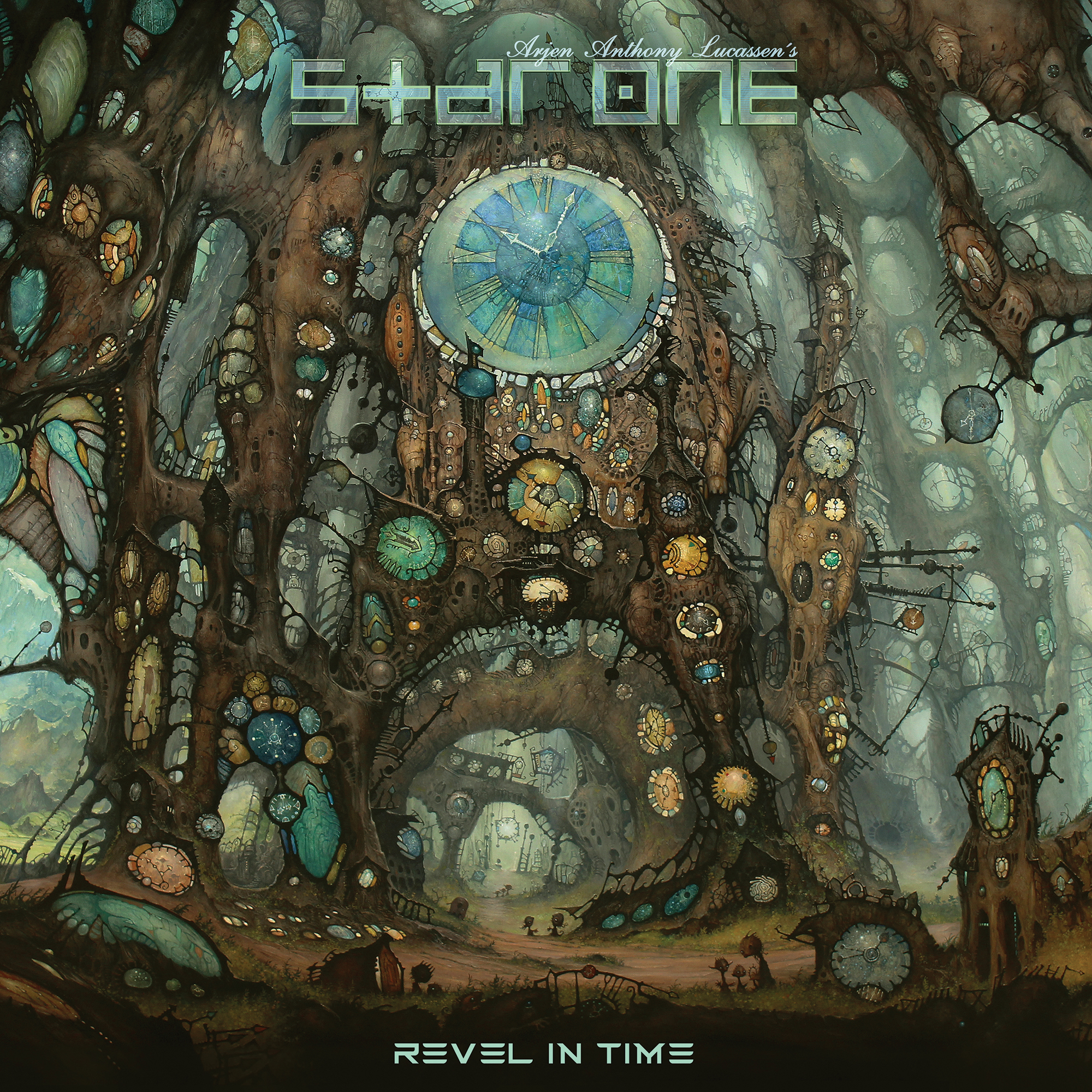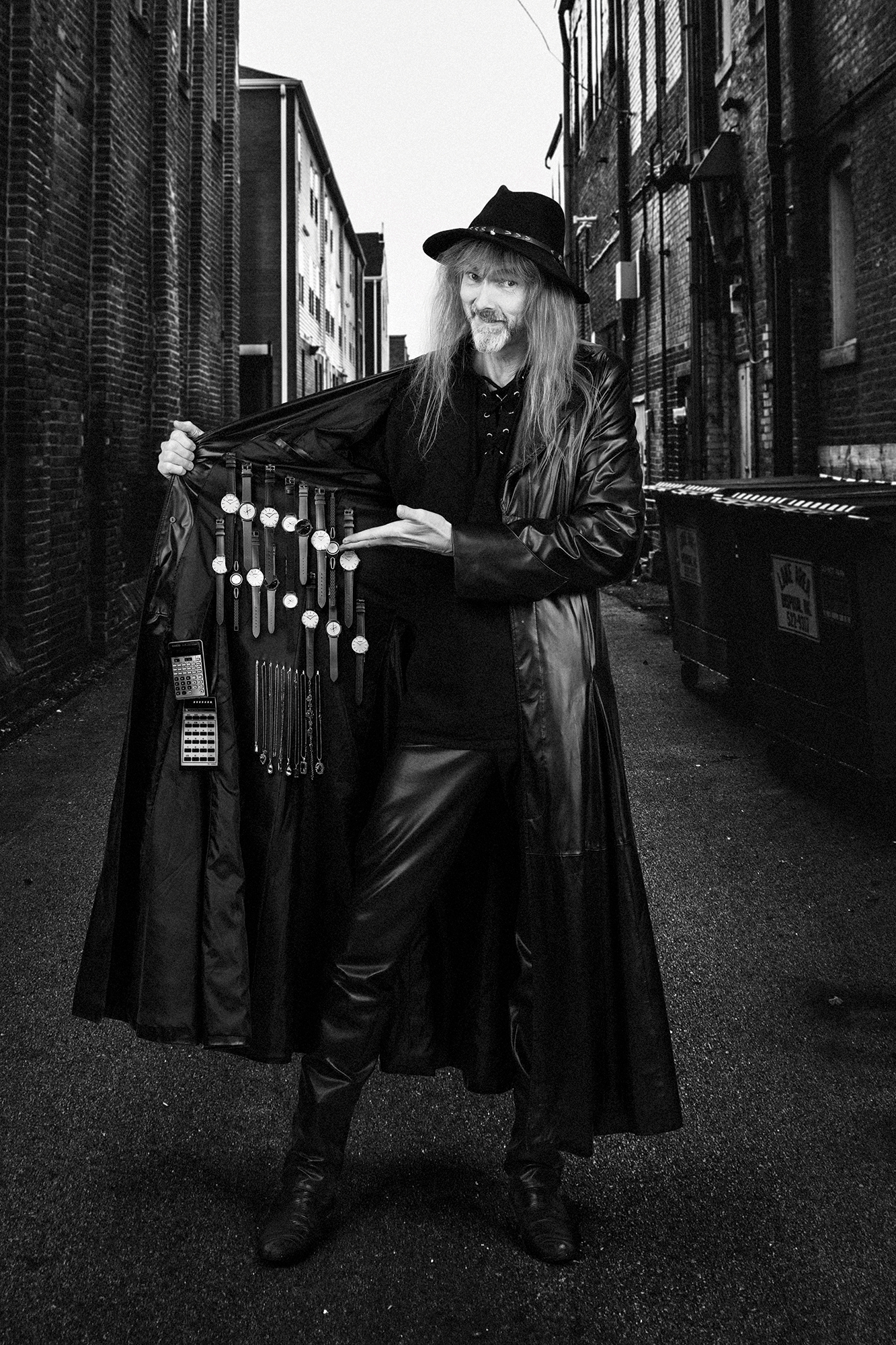There are those musicians who create songs as a pleasant pastime, writing when the urge to be creative strikes as a fleeting distraction from their everyday lives. Then there are people like Arjen Anthony Lucassen, for whom music and writing consumes every single day of his life.
It’s that drive that has seen him release music under a variety of guises, often laden with guest musicians to add even more sparkle to the recordings. The mainstay is Ayreon – a vehicle for all the genres ranging from metal to folk – which truly encompasses his approach to music. But there’s been a plethora of other musical monikers, from The Gentle Storm, Guilt Machine, Stream Of Passion through to albums released under his own name. The uninitiated may be confused by this array of projects, but Lucassen retains a hugely loyal fanbase who, for the most part, adore the music he produces. That said, his last Ayreon album, Transitus, produced a definite divergence in his fanbase.
“I have to say that it did sell it very well,” Lucassen tells Prog, “so that was not the problem. “It was just that opinions were varied and there was controversy. I usually don’t really get that, but it was a love-it-or-hate-it album. I had the same thing with the Guilt Machine album [On This Perfect Day, 2009], which I’m very proud of, but people either loved it and thought it was the best thing that I’ve ever done, or they didn’t like it and thought it was the worst thing that I’ve ever done. So that happened with Transitus as well and it wasn’t received that well by the fans or by the press. I think the reason was that it wasn’t really a true Ayreon album. I’d wanted to make a movie, so it was basically film music, every song was written for the movie. We needed two million euros to produce the movie and it wasn’t to be. So, the record company said ‘Let’s release it as Ayreon’, which in hindsight was a mistake.”

In a deliberate reaction to the somewhat protracted nature of Transitus, Lucassen has revived Star One – his project centred on the more progressive metal elements of his sound – after a decade-long hiatus. Revel In Time is the third Star One album, but the move isn’t a cynical attempt at fanbase manipulation, and more to maintain Lucassen’s enthusiasm in creating fresh music of differing styles.
“For me, that’s the most important thing,” he explains. “I couldn’t be like AC/DC or a Motörhead. I couldn’t just make the same album with slight variations. I have to do something very different. It’s to keep it interesting for myself and of course to keep it interesting for the fans. Commercially speaking, I have no idea what’s the best thing to do, so I decided that I just had to rock out for this album, just grab my guitar, come up with some riffs and not think too much about it. The writing for this album was really easy compared to Transitus, which I’d worked on for three years. The guitar is in my blood and I’ve been writing like that since the 70s. I can just grab the guitar, the riffs come out and they lead me into the melodies.”
For Lucassen, such a speedy writing process is far from the norm. He has admitted to suffering bouts of nerve-shattering, stress-inducing writer’s block. Indeed, he reveals he’s currently battling his way through that creative hindrance while working (or not) on his next, unnamed project.
“Writer’s block is awful and it’s always the way it starts,” he says, wincing at the thought. “It really is terrible. I wrote a song called Pink Beatles In A Purple Zeppelin, which says that every song has been sung before and every note has been played. Each time I start writing, that’s really what I think. I will grab the guitar and then think I’ve already done this or someone else did that. I have to go through that and sometimes it takes six months until that one idea comes. I think it was the track Prescient this time. I remember thinking that it was different and worth working on. Then I get more secure and suddenly all the other ideas just flow. I’m going through that now because the Star One album was finished months ago, so I want to get into something new. But nothing is coming and I have no ideas and no direction. Nothing. Every time, I tell my girlfriend that it’s awful and that the well is dry now, that I’ve done everything, there’s nothing left and that I can only repeat myself. But so far, I’ve always managed to climb out of the black hole.”

Lucassen’s solitary lifestyle has meant that he refuses to allow any other musicians to write with him. For a perfectionist, that’s an admirable facet, but wouldn’t working in a band scenario provide unexpected creative sparks that might otherwise elude him?
“No, because I’m terrible at working with other people,” he says, with a hearty laugh. “You have to compromise and I don’t want to do that because I’m a total control freak. Often people tell me that I’m such a nice guy and yes, I am, but only because I can do what I want. If I can’t then I can be a terrible asshole. If you asked my old bandmates from the 70s, there will be people who totally hate me. One of the guys was interviewed in a Dutch metal magazine and had a whole page just complaining about me. I think the headline was ‘Arjen is Hitler’ or something like that. Of course, I’m not a bad guy but I am a control freak, and I guess that is one of the reasons that I do everything on my own – not just the writing but the production, picking the musicians and even the artwork or the promotion. When I start working with people, I say to them, ‘I’m a terrible control freak but the good thing is that I know what I want and then I am happy.’”
For Revel In Time, Lucassen has again utilised the talents of a vast number of guest musicians. The original quartet of vocalists – Damian Wilson, Russell Allen, Dan Swanö and Floor Jansen – return, joined by Jeff Scott Soto (Sons Of Apollo) and Joe Lynn Turner. Additionally, contributing musicians include guitarists Steve Vai, Michael Romeo (Symphony X) and Adrian Vandenberg (Whitesnake). Which all begs the question: given Lucassen’s perfectionist streak, how does he guides someone with the virtuosity of Steve Vai?
“Well, it really isn’t a matter of guiding him, as he is Steve Vai,” says Lucassen. “I think my biggest talent is to recognise talented people, and to have insight into what the person will like. I had a part I thought Steve Vai would like, as he could do whatever he wanted with it. He could show off his virtuosity but also make beautiful melodies with the chords. I just knew that he would be interested, as this wasn’t a part that he would usually get asked to play.”
Naturally, there’s a lyrical concept running through the album. The two previous Star One records contained movie references. The debut, 2002’s Space Metal, hinted at sci-fi films like Alien, and 2010 follow-up Victims Of The Common Age came had a Blade Runner-style dystopian feel. This time Lucassen alludes to movies involving time travel, but he doesn’t merely recount their plots – the references are far more subtle. There aren’t, for example, any songs called Flux Capacitor.
“Or Great Scott,” adds Lucassen, with a game chuckle. “But yes, it’s basically time travel stuff like Back To The Future and Donnie Darko. I don’t want to just retell the movie, use names from the movie or call the song Donnie Darko or something. I wouldn’t do that. I have to watch the movie and think, ‘What do they want to say with this movie? What’s the message and what does it mean to me?’ So that’s pretty hard as I have to find a way to make it a bit cryptic, not just too obvious. I just watched my favourite movies again, which is a great way to work.”
This article originally appeared in issue 127 of Prog Magazine.
